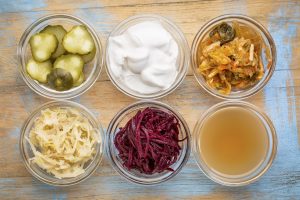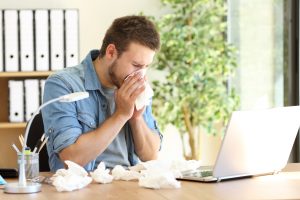 Sleep is a valuable commodity. And it is a whole lot more important than many of us may think. How many times have you told yourself that you can survive on very little sleep. Or maybe you have said that you have more important things to do besides sleep. Sleep is not only important for providing you energy to get through the day. It can also impact your health in a major way if you don’t get enough. Recent research shows that getting more sleep at night could help you lose weight and improve health.
Sleep is a valuable commodity. And it is a whole lot more important than many of us may think. How many times have you told yourself that you can survive on very little sleep. Or maybe you have said that you have more important things to do besides sleep. Sleep is not only important for providing you energy to get through the day. It can also impact your health in a major way if you don’t get enough. Recent research shows that getting more sleep at night could help you lose weight and improve health.
Why is sleep so important?
Some people may try to get as much done in a day as possible without sleeping much. This may be good for your to-do list, but not for your health. When you are asleep, your body does a lot of important things that help maintain optimal health. Without enough shut-eye, these body processes could be harmed and in turn you could increase your risk of chronic disease risk and decreased well-being. Some processes that occur when you are asleep include:
- regulation of blood pressure and hormones
- transfer of information from short to long term memory
- strengthening of cognitive function
- restoration and repair of muscle mass and tissues
Most adults should get at least seven to nine hours of sleep each night for optimal health. I know this can be hard to do all of the time because of life’s demands. However, just like a person makes time to eat healthy and exercise, it is just as important to make time for sleeping.
Sleep and Weight Loss
A recent study looked at the impact of sleep loss on various health factors. Participants in the study had tissue and muscle samples taken after in the morning fasting state after a night of sleep loss and after a night of normal sleeping. Study results show that those who were sleep-deprived had a down-regulation of the glycolytic pathway in skeletal muscle.
In simpler terms, those who were sleep-deprived had biological changes in their hormones like increased cortisol, reduced testosterone, and reduced growth hormone, which can all impact the body’s ability to manage a healthy weight. Also, not getting enough rest at night can reduce lean muscle mass, which in turn can negatively impact metabolism. And this in turn can affect weight management. Therefore, although this study was on the smaller side, it warrants further research on the impact of sleeping on weight management.
How to get more sleep
If you have trouble getting your seven to nine hours a day, then you may need to make some adjustments to your environment or routine. Here are a few tips to help you get more z’s.
- Use blackout curtains: When you expose your eyes to bright lights from lamps, screens, and other sources, it can make it hard to rest. The healthy body produces melatonin, or sleep hormone at night to help you rest. However, exposure to lights can affect the circadian rhythm in your body, and in turn delay release of melatonin. Therefore, this can make it hard to get shut-eye. Blackout curtains can block natural light that may be coming in through your windows from street lamps, neighbors windows, or car headlights.
- Reduce screen time: Along this same line of thinking is reducing screen time. By giving your eyes a rest from the light of the screen, you can also give your mind some rest. This in turn can help you fall asleep better.
- Don’t eat before bedtime: If you eat a large meal less than two hours before bedtime, then you could get indigestion or heartburn. This in turn could make it hard to fall asleep. The same goes for fluids. If you drink too much before bedtime, then you may have to get up frequently in the middle of the night. These bathroom visits could interrupt the REM cycle.
- See your healthcare provider: If none of these strategies are helping you fall asleep and stay asleep, then there may be a medical issue to address. See your healthcare provider in such cases. A sleep study or physical exam could help yo find out if pain, sleep apnea, or another health condition may be making it hard for you to rest.
In the meantime, you can try a supplement like Somnova by Vita Sciences. Somnova contains natural ingredients like melatonin and L-theanine to help promote better sleep. Be sure to ask your healthcare provider before starting any new supplement regimen.
-written by Staci Gulbin, MS, MEd, RD
References:
Cedernaes, J., et al. (2018) “Acute sleep loss results in tissue-specific alterations in genome-wide DNA methylation state and metabolic fuel utilization in humans.” Science Advances, 4(8): DOI: 10.1126/sciadv.aar8590
National Sleep Foundation (accessed September 24, 2018) “Why Do We Need Sleep?”
 So much focus is placed on diet and exercise to stay healthy, that sometimes mental health care can be forgotten. However, the health of both mind and body is important to be in your best state of health. In fact, a recent report has found that being lonely may be a greater hazard to public health than obesity.
So much focus is placed on diet and exercise to stay healthy, that sometimes mental health care can be forgotten. However, the health of both mind and body is important to be in your best state of health. In fact, a recent report has found that being lonely may be a greater hazard to public health than obesity.
 It’s about that time of year. Cold and flu season is greatly approaching. Although some employees may have paid sick leave, they may be afraid to use it for risk of ruining their reputation. On the other hand, maybe there is no one to cover their shift. Employees do not have a choice in workplaces where there is no paid sick leave. If these employees stayed home, they would risk losing pay, or in some cases, their job. A recent study has shown that workplaces without paid sick leave are at risk for harming the health of their employees.
It’s about that time of year. Cold and flu season is greatly approaching. Although some employees may have paid sick leave, they may be afraid to use it for risk of ruining their reputation. On the other hand, maybe there is no one to cover their shift. Employees do not have a choice in workplaces where there is no paid sick leave. If these employees stayed home, they would risk losing pay, or in some cases, their job. A recent study has shown that workplaces without paid sick leave are at risk for harming the health of their employees.